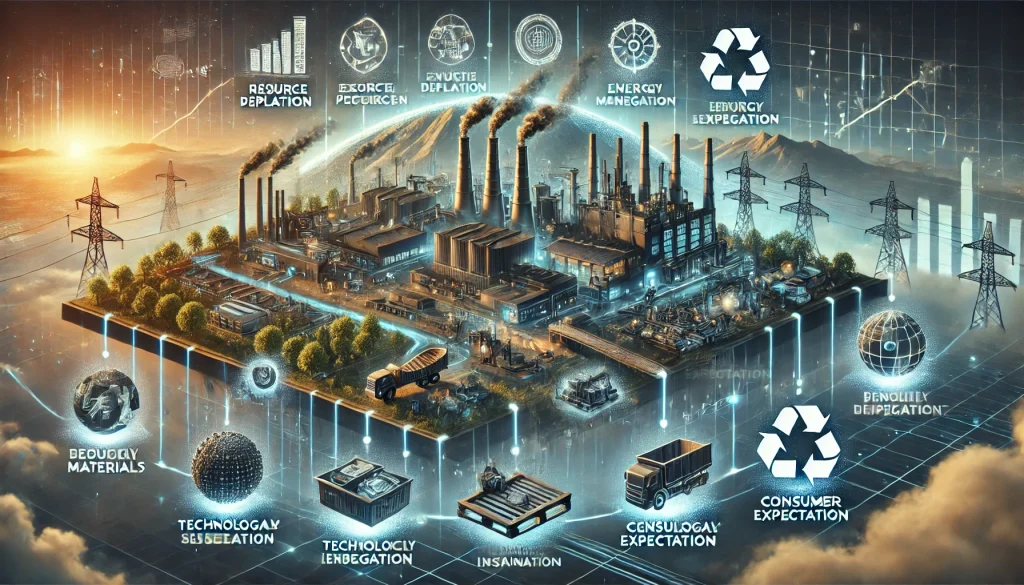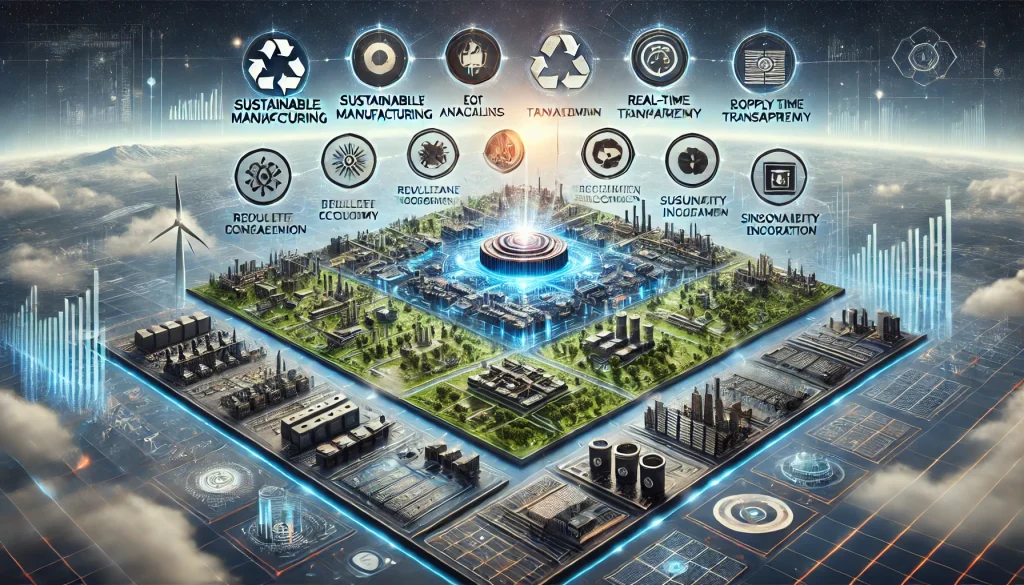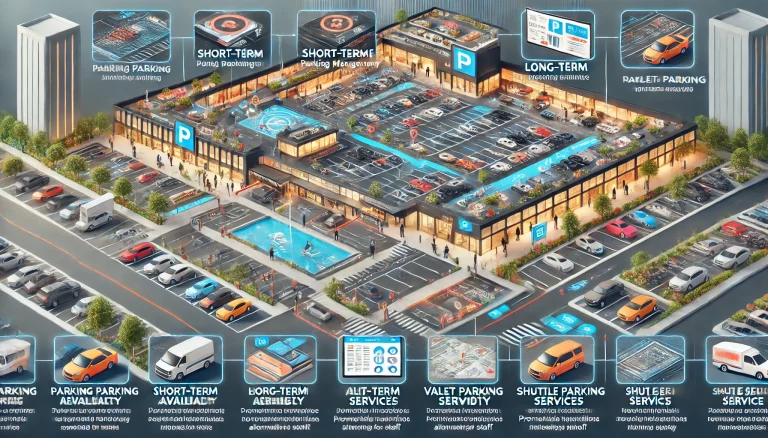Problem Statement
The production and disposal of electronic devices have significant environmental impacts. Electronics manufacturing involves the extraction and processing of raw materials, which contributes to resource depletion, pollution, and habitat destruction. The production process itself is energy-intensive and generates substantial greenhouse gas emissions. Once devices reach the end of their lifecycle, improper disposal can lead to electronic waste (e-waste), which contains hazardous materials that pose serious environmental and health risks. Companies in the electronics industry face increasing pressure from regulators, consumers, and environmental organizations to adopt sustainable practices, reduce waste, and minimize their carbon footprint. Balancing environmental responsibility with profitability poses a substantial challenge. Implementing sustainable practices often requires significant investment in new technologies and processes, which can be costly and complex. Additionally, navigating the evolving landscape of environmental regulations and standards can be daunting. Companies must find ways to integrate sustainability into their business models while maintaining profitability and competitive advantage. Addressing these challenges requires a comprehensive platform that provides tools and resources for sustainable electronics manufacturing, efficient waste management, and compliance with environmental regulations. Such a platform would enable companies to achieve their sustainability goals, reduce environmental impact, and enhance their reputation as responsible corporate citizens.
Pain Points
- Resource Depletion: Extraction of raw materials depleting natural resources.
- Pollution: Pollution from manufacturing processes affecting air and water quality.
- Energy Consumption: High energy usage during production leading to increased carbon footprint.
- E-Waste Management: Challenges in managing and recycling electronic waste.
- Hazardous Materials: Presence of hazardous substances in e-waste posing health risks.
- Regulatory Compliance: Navigating complex and evolving environmental regulations.
- Cost of Sustainability: High costs associated with implementing sustainable practices.
- Technological Integration: Difficulty in integrating new sustainable technologies into existing processes.
- Consumer Expectations: Rising consumer demand for environmentally responsible products.
- Profitability: Balancing sustainability initiatives with maintaining profitability.

Future Vision
Our platform envisions a future where the electronics industry can achieve environmental sustainability without compromising profitability. Leveraging advanced technologies such as AI, blockchain, and IoT, the platform will provide comprehensive solutions for sustainable electronics manufacturing, efficient waste management, and regulatory compliance. AI-driven analytics will optimize resource usage and energy consumption, while blockchain technology will ensure transparency and traceability in the supply chain. IoT-enabled devices will monitor environmental impact in real-time, enabling proactive management and reduction of emissions. The platform will also facilitate recycling and reuse of electronic components, reducing e-waste and promoting a circular economy. By offering tools for compliance with environmental regulations, the platform will help companies navigate the complex legal landscape and avoid penalties. Our vision is to create a sustainable electronics ecosystem that aligns environmental responsibility with business success, driving innovation and fostering a greener future for the industry.
Use Cases
- Sustainable Manufacturing: AI-driven optimization of resource usage and energy consumption in manufacturing.
- E-Waste Management: Tools for efficient recycling and reuse of electronic components.
- Supply Chain Transparency: Blockchain-enabled traceability of materials and components.
- Real-Time Monitoring: IoT devices for monitoring environmental impact and emissions.
- Regulatory Compliance: Automated tools for ensuring compliance with environmental regulations.
- Resource Optimization: Analytics for optimizing material sourcing and usage.
- Circular Economy: Solutions for promoting recycling and reuse in the electronics industry.
- Consumer Engagement: Platforms for educating consumers on sustainable practices and products.
- Sustainability Reporting: Tools for tracking and reporting environmental performance.
- Innovation Incentives: Programs to encourage innovation in sustainable technologies and practices.
Target Users and Stakeholders
- User: Electronics Manufacturers and Sustainability Managers
- Age Group: 30-60 years
- Gender: M/F
- Usage Pattern: Regular usage for managing sustainability initiatives, compliance, and reporting
- Benefit: Enhanced sustainability, reduced environmental impact, and improved regulatory compliance
- Stakeholders:
- Electronics Companies: Businesses involved in the production of electronic devices
- Regulators: Agencies overseeing environmental compliance
- Consumers: Individuals seeking environmentally responsible products
- Investors: Entities investing in sustainable technologies and practices
- Environmental Organizations: Groups advocating for sustainable practices in the industry
Key Competition
- SAP: Provides sustainability management solutions for various industries.
- IBM: Offers AI-driven tools for optimizing manufacturing processes and reducing environmental impact.
- Schneider Electric: Specializes in energy management and automation solutions for sustainability.
- Microsoft: Provides cloud-based solutions for sustainability reporting and compliance.
- Siemens: Offers integrated solutions for sustainable manufacturing and resource management.
Products/Services
- SAP Sustainability Solutions: Tools for managing sustainability initiatives and compliance.
- IBM Environmental Intelligence Suite: AI-driven tools for optimizing manufacturing processes.
- Schneider Electric EcoStruxure: Energy management and automation solutions for sustainability.
- Microsoft Cloud for Sustainability: Cloud-based solutions for sustainability reporting and compliance.
- Siemens Sustainable Manufacturing Solutions: Integrated solutions for resource management and sustainable manufacturing.
Active Startups
- Loop: Provides circular economy solutions for electronics recycling and reuse.
- AMP Robotics: AI-driven robotics for sorting and recycling e-waste.
- R2 Recycling: Specializes in sustainable e-waste management solutions.
- Fairphone: Develops modular and repairable smartphones to reduce e-waste.
- Enevo: Uses IoT for optimizing waste collection and recycling.
- Loomia: Creates sustainable electronic textiles and components.
- Sourcemap: Provides supply chain transparency and traceability solutions.
- Bravus: Develops eco-friendly batteries and energy storage solutions.
- Sensoneo: IoT solutions for smart waste management and environmental monitoring.
- TerraCycle: Offers recycling programs for hard-to-recycle materials, including electronics.
Ongoing Work in Related Areas
- AI and Machine Learning: Enhancing resource optimization and energy efficiency in manufacturing.
- Blockchain: Ensuring transparency and traceability in the supply chain.
- Circular Economy: Promoting recycling and reuse of electronic components.
- IoT: Developing smart devices for real-time monitoring of environmental impact.
- Regulatory Compliance: Innovating tools for automated compliance with environmental regulations.
Recent Investment
- Loop: $16M in Series A funding led by Sequoia Capital, January 2020.
- AMP Robotics: $55M in Series B funding led by XN, November 2020.
- R2 Recycling: $12M in Series A funding led by Next47, March 2021.
- Fairphone: $7M in Series C funding led by Pymwymic, April 2021.
- Enevo: $12M in Series B funding led by Lifeline Ventures, June 2020.
Market Maturity
The market for sustainability solutions in the electronics industry is rapidly maturing, driven by increasing regulatory pressures and consumer demand for environmentally responsible products. Established companies like SAP, IBM, and Schneider Electric offer comprehensive solutions for sustainability management, while innovative startups like Loop, AMP Robotics, and Fairphone are pushing the boundaries with cutting-edge technologies and circular economy models. Significant investments in AI, blockchain, and IoT are transforming the industry, enabling companies to optimize resource usage, reduce waste, and ensure compliance with environmental regulations. As the market continues to evolve, we expect more integrated and advanced platforms to emerge, providing end-to-end solutions for sustainable electronics manufacturing and waste management.
Summary
The production and disposal of electronic devices have significant environmental impacts. Companies in the electronics industry face increasing pressure to adopt sustainable practices, reduce waste, and minimize their carbon footprint. Balancing environmental responsibility with profitability poses a substantial challenge. Our proposed platform leverages AI, blockchain, and IoT to provide comprehensive solutions for sustainable electronics manufacturing, efficient waste management, and regulatory compliance. Key pain points include resource depletion, pollution, energy consumption, e-waste management, hazardous materials, regulatory compliance, cost of sustainability, technological integration, consumer expectations, and profitability.
Target users include electronics manufacturers and sustainability managers, with stakeholders encompassing electronics companies, regulators, consumers, investors, and environmental organizations. Key competitors like SAP, IBM, Schneider Electric, Microsoft, and Siemens offer various sustainability management solutions. Active startups such as Loop, AMP Robotics, R2 Recycling, Fairphone, and Enevo are driving innovation in this space. Recent investments highlight significant interest and growth potential in sustainability technologies and waste management solutions.
By addressing these challenges and leveraging advanced technologies, our platform aims to create a sustainable electronics ecosystem that aligns environmental responsibility with business success, driving innovation and fostering a greener future for the industry.


